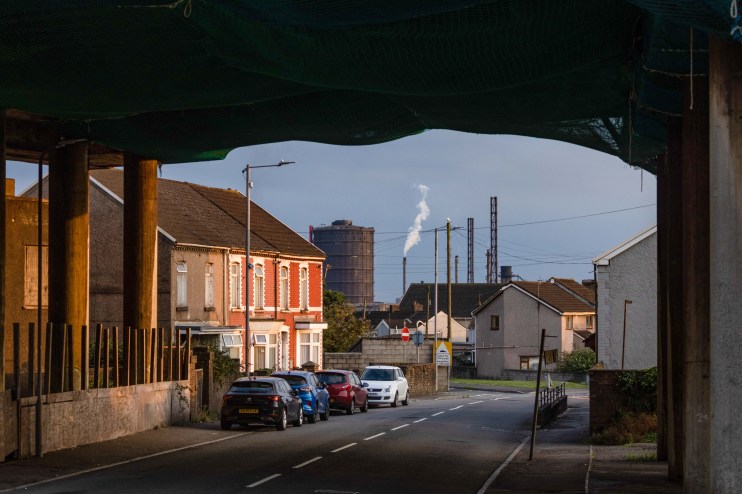It would be senseless to delay a tax supported by greenies and the steel industry

Implausible though it sounds, businesses in Britain are clamouring for a new tax this Autumn Statement. Even more unlikely, both heavy industry and environmentalists are aligned in wanting it. That’s right, the unsexily-titled carbon border adjustment mechanism (which parades around the punchy acronym CBAM) has managed a feat few thought possible: the union of greenies and the British steel industry.
Why? The UK’s existing domestic tax on carbon encourages the green transition by whacking costs onto carbon-heavy goods produced at home. Great. But the taxes are not applied to foreign imports. This results in the bizarre situation of steel from Scunthorpe costing a shed load more than steel from Sichuan province.
A carbon border tax, pioneered by the EU world-leading CBAM, has won plaudits from British economist Dieter Helm and environmental groups like the Green Alliance.
British firms are also eyeing up the scheme with evident envy. Practically three quarters of manufacturers have said they want the government to introduce a similar carbon border tax.
Unsurprisingly: the UK is currently limbering along under a noble but flawed system that both encourages domestic carbon-intensive industries to decarbonise, but puts those same manufacturers at a disadvantage in favour of foreign competitors.
This is the insanity of the emissions trading scheme (ETS) – a policy that harbours under the illusion that carbon respects borders. It doesn’t. We import, for example, around 25 per cent of our steel. This is largely from Europe but also from China and Turkey which do not currently impose any carbon taxes.
In 2021, Helm told a parliamentary inquiry that to not have a carbon border tax, but to continue to import foreign products, is the equivalent of “subsidising” our international competitors.
It’s also immoral. The UK has improved its performance as a carbon emitter, reducing territorial carbon emissions, but is simply importing the stuff instead. Globally, that only serves to make the climate crisis worse. As a rich country historically responsible for the climate crisis, that’s poor.
Next week, Jeremy Hunt will consider a variation of the EU’s equivalent programme in the Autumn Statement. After all, this isn’t a measure Extinction Rebellion is clamouring for, it’s UK Steel, the trade association asking the government. It would also rake in a significant amount of money for the Treasury.
This will take time. The EU finally launched a pilot for its carbon border tax last month after four years of consultation. If we continue to put it off, as Rishi Sunak’s government has tended to do with “green stuff”, a trade barrier with Europe could emerge (as warned by UK Steel director-general Gareth Stace). A carbon border tax would also lower the burden of administration for British businesses operating in the EU.
The UK is in dire need of funds if industry is to decarbonise. Sunak’s rollback on climate pledges in September spooked investors. Just yesterday EY released data showing the UK had slipped to seventh on the global rankings of attractive places to invest in green stuff.
Simon Cran-McGreehin of the Energy and Climate Intelligence Unit (ECIU) said the government’s recent movements “generally give the impression of the UK reducing its efforts [on climate measures]”. He cited the embarrassing offshore wind debacle in which the government set prices too low to account for supply chain inflation, meaning they attracted zero bids for their offshore wind contracts for difference, as well as the U-turns on electric vehicle transition dates.
Green minded – or just future-thinking – companies are being tempted by the US as a result of Biden’s Inflation Reduction Act. If the UK wants to attract investment – and god knows we need it – the mood music around UK goals for climate must sound more upbeat. The ECIU thinks a CBAM-equivalent would play a more appealing tune with investors.
It is rare that British business and environmentalists’ desires align. The government should take advantage of this unusual but welcome fraternity and press on with a carbon border tax.